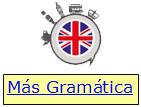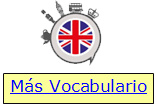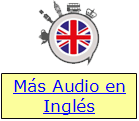|
Who Whose Who’s and Whom
To understand how to use ‘who’, ‘whom’ and ‘whose’ you first have to
understand the difference between subjects, objects and possessives.

The subject does the action:
She works in a cafe.
He likes cooking.
They bought a new car.
The object receives the action:
Everyone likes him.
I don’t know her.
They didn’t speak to us.
Possessives tell us the person something belongs to:
His new mobile phone is really expensive.
I like his sunglasses, not hers.
We’re selling our flat.
‘Who’ can be a subject pronoun like ‘he’, ‘she’ and ‘they’ or object
pronoun like ‘him’, ‘her’ and ‘us’.
We can use ‘who’ to ask which person did an action or which person is in
a certain state (subject):
Who wrote the email?
Who is that girl over there?
Who is getting the drinks?
We can also use ‘who’ to ask which person received an action (object):
Who are you going to invite to the wedding?
Who did you meet last night?
Who has she chosen to go with?
‘Whom’ is an object pronoun like ‘him’, ‘her’ and ‘us’ used with formal
English. We use ‘whom’ to ask which person received an action. It isn’t
common to use whom. Most native speakers use ‘who’ instead.
Who(m) are you going to invite to the wedding?
Who(m) did you meet last night?
Who(m) are they going to choose to manage Arsenal?
‘Whom’ MUST go after a preposition, NOT ‘who’, with formal English:
The lady with whom Reza was dancing was the Marquise (Marquesa)
‘For whom the bells toll’ is Hemingway’s famous novel set in the Spanish
Civil War.
‘To whom it may concern’ is typical at the top of a reference.
When the pronoun and preposition are separated and/or the pronoun comes
first, ‘who’ MUST be used, NOT ‘whom’:
The woman who Reza was dancing with must have been a bit tipsy! (tipsy-un
poquito bebida)
Who did they sell their old car to yesterday?
Young boy: “Can I go to the cinema tonight, mum?”
Mother: “Who with?”
‘Whose’ can be a possessive adjective, like ‘her’ and ‘our’, or
possessive pronoun, like ‘hers’’ or ‘ours’ . We use ‘whose’ to find out
which person something belongs to.
Whose glass is this?
Whose is this jacket?
I see a book on my chair. Whose is it?
Whose are these?
Don’t confuse whose and who’s = who is. They’re pronounced the same:
Who’s (= Who is) that ringing the doorbell?
That’s the person who’s(= who is) coming with me to Brian’s party.
TOP TIPS FOR TOEFL
– time yourself
– take notes (bullet points)
– breath deeply
– practise speaking in noisy places and recording yourself
– image you are speaking to a good friend as you speak into the
microphone
 *Dispones
de más
PODCAST en inglés publicados en los cuadernos anteriores *Dispones
de más
PODCAST en inglés publicados en los cuadernos anteriores
a los que puedes acceder directamente así como al índice de su
contenido. |
|
|
